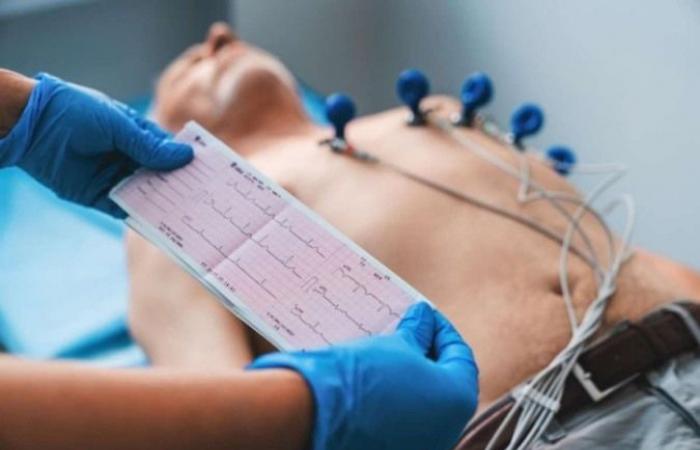The well-known relationship between cardiovascular health and brain well-being has gained more weight. New research involving more than 13,000 individuals has revealed that changes in the brain’s blood vessels, which increase the risk of stroke and dementia, are common in people with a variety of heart problems, regardless of whether they have previously had a stroke. . The study published in the journal Neurologyfrom the American Academy of Neurology, represents the most comprehensive systematic analysis to date of brain changes considered occult in patients with various conditions that affect the heart.
Lead author Zien Zhou from the Australia-based George Institute for Global Health says identifying these changes could play a crucial role in choosing treatments for these patients. “Although people with heart disease are two to three times more likely than the general population to have changes in the cerebrovascular system, these changes are often overlooked because these patients often do not undergo brain imaging unless have had a stroke”, he explained in a note.
“However, these changes may make them more vulnerable to the risk of brain hemorrhages caused by medications commonly used to treat or prevent blood clots. Intracranial hemorrhage is a potentially fatal complication, with no proven treatment and a survival rate of less than 50% “, detailed the researcher.
Changes in the brain’s blood vessels detectable only by brain imaging, such as silent cerebral infarction (SBI) and cerebral small vessel disease (CSVD), are more common in older people or those with hypertension. Although they do not cause overt neurological symptoms, these changes can result in subtle neurological deficits and increase the long-term risk of stroke or dementia.
Prevalence
To determine the prevalence of these occult cerebrovascular changes in adults with atrial fibrillation, coronary artery disease, heart failure or cardiomyopathy, heart valve disease, and patent foramen ovale — a heart defect — researchers at the George Institute analyzed 221 studies published between 1988 and 2022.
The findings indicated that among people with heart disease, about a third had some form of SBI. A quarter had lacunae, small cavities where brain tissue had died after a previous blockage or leak from small arteries. Two-thirds showed damage to the white matter, the protective coating around nerve fibers. A quarter showed evidence of asymptomatic microbleeds in brain tissue.
More than half had cerebral atrophy, a shrinkage of the brain due to the loss of neurons or connections between neurons. The prevalence of these changes was similar between those with and without a recent history of stroke, and no apparent differences were observed between the sexes in the results. The study also highlighted that heart disease is one of the main causes of these changes, reflecting brain fragility.
Renato Andrade Chaves, neurosurgeon and specialist in brain and spine, points out that the relationship found by the research could have significant clinical impacts, if proven. “There would be more awareness about the importance of properly monitoring and treating cardiac issues to prevent cerebrovascular complications and dementia. Additionally, the discovery could influence screening protocols and medical care, highlighting the need for more comprehensive neurological assessments in patients with heart disease.”
Alert
For Chaves, “this information can lead to earlier and more targeted interventions, potentially improving the results and quality of life of these patients.”
“It may be that a gradual decline in cardiac output in some patients with heart disease affects the amount of blood reaching brain tissue, contributing to vascular changes and cognitive dysfunction in these patients. It is also possible that hidden brain changes and cognitive dysfunction are consequences of small blood clots traveling to the brain through the arterial circulation after forming in the heart,” he added.
Carlos Uribe, neurologist at Hospital Brasília of the Dasa network in the Federal District, considers that the research does not clarify how these patients were selected. “It is not possible to estimate what the increased chance is, we hope that the increase is due to a pathophysiological mechanism. But it is not known how much more it is, compared to control subjects.”
Uribe highlights that to mitigate the effect of these changes on brain health there are some guidelines that aim to control risk factors. “These are lifestyle changes that include physical activity, blood pressure and diabetes control. And also other interventions that seek to strengthen the brain. The connections between neurons, such as cognitive stimulation, intellectual activity.”
Nasser Sarkis, cardiologist at Hospital Brasília, reiterates that it is necessary to better understand the connection in order to be able to act. “I can’t treat it in an unknown way, it’s paradoxical. The important thing is to emphasize classic care. Aging still has a genetic component. You need to take rigorous care, change your lifestyle.”
Zien Zhou emphasized the need for more research to analyze the exact causes of these changes and the implications for patient management. “It is important to know whether performing additional MRIs on patients being considered for anticoagulant therapy, which is necessary for most people with heart disease, would be advantageous in terms of preventing unwanted side effects,” she concluded.
Medical interaction
This greater interaction has to be done, doctors have to communicate better and specialties have to talk more. As the heart loses its ability to pump blood, the patient’s cardiac output decreases and less blood effectively reaches the brain. These changes, according to the study, can increase the predisposition to brain problems and even possible ischemic injuries. Lifestyle is common to cardiovascular and brain health. Most strokes and heart attacks can be avoided with good habits. As mentioned in the article, by controlling blood pressure, diabetes and weight, in addition to stopping smoking and a sedentary lifestyle, we can prevent a large proportion of heart diseases and up to 80%, 90% of strokes.
Victor Hugo Espíndola, neurosurgeon and specialist in cerebrovascular diseases, in Brasília
Medical interaction
This greater interaction has to be done, doctors have to communicate better and specialties have to talk more. As the heart loses its ability to pump blood, the patient’s cardiac output decreases and less blood effectively reaches the brain. These changes, according to the study, can increase the predisposition to brain problems and even possible ischemic injuries. Lifestyle is common to cardiovascular and brain health. Most strokes and heart attacks can be avoided with good habits. As mentioned in the article, by controlling blood pressure, diabetes and weight, in addition to stopping smoking and a sedentary lifestyle, we can prevent a large proportion of heart diseases and up to 80%, 90% of strokes.
Victor Hugo Espíndola, neurosurgeon and specialist in cerebrovascular diseases, in Brasília
Did you like the article? Choose how to follow the main news from Correio:
Receive news on WhatsApp
Receive news on Telegram
Give your opinion! Correio has a space in the print edition to publish readers’ opinions via email at [email protected]
Tags: Heart problems increase chances stroke dementia study finds
--





